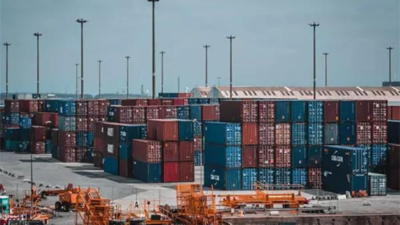
A sharp drop in imports helped narrow the US trade deficit to its lowest in over two years, as sweeping tariffs imposed by President Donald Trump took effect across major global markets.The US trade deficit shrank to $61.6 billion in April, falling by more than 55% from March, according to government data released on Thursday. The pullback followed a record-high gap of $138.3 billion in March, when companies rushed to import goods ahead of expected tariff hikes.Imports tumbled 16.3% to $351 billion as Trump’s blanket 10% tariffs on nearly all trading partners came into force. The steepest declines were seen in consumer goods, with pharmaceutical and mobile phone imports dropping significantly.As reported by AFP, the data from the Commerce Department showed that exports in April rose 3% to $289.4 billion, driven by industrial supplies. However, automobile and auto part exports fell by $3.3 billion.Goods from China were most affected, with trade between the world’s two largest economies slowing sharply amid tit-for-tat tariff escalations that pushed levies on both sides past 100%. Shipments from China largely halted in April, before a temporary de-escalation agreement was reached.A phone call between Trump and Chinese President Xi Jinping is now expected to take place, raising hopes of further easing. But the outlook for a long-term trade deal remains unclear. Trump recently accused China of breaching the temporary accord, an allegation Beijing has denied.Alongside the 10% universal tariff, Trump also briefly announced steeper duties on dozens of countries, including the European Union and Japan, before pausing them to allow for negotiations. That pause is set to expire in early July.In addition to global levies, Trump has also imposed targeted tariffs on key sectors. Steel, aluminium, and automobile imports were hit with new duties in March and April, with rates on metals doubled again this month.The trade deficit reported in April was the smallest since early 2023, underscoring the immediate impact of the administration’s protectionist measures.














